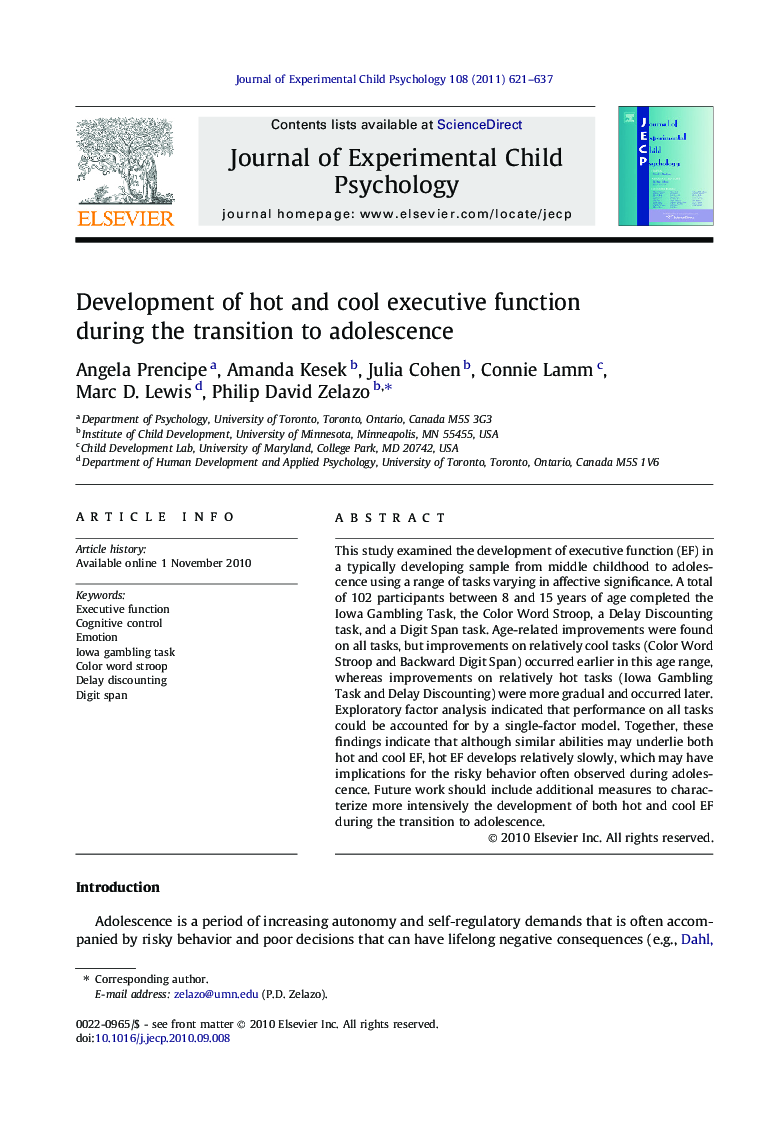| Article ID | Journal | Published Year | Pages | File Type |
|---|---|---|---|---|
| 918449 | Journal of Experimental Child Psychology | 2011 | 17 Pages |
This study examined the development of executive function (EF) in a typically developing sample from middle childhood to adolescence using a range of tasks varying in affective significance. A total of 102 participants between 8 and 15 years of age completed the Iowa Gambling Task, the Color Word Stroop, a Delay Discounting task, and a Digit Span task. Age-related improvements were found on all tasks, but improvements on relatively cool tasks (Color Word Stroop and Backward Digit Span) occurred earlier in this age range, whereas improvements on relatively hot tasks (Iowa Gambling Task and Delay Discounting) were more gradual and occurred later. Exploratory factor analysis indicated that performance on all tasks could be accounted for by a single-factor model. Together, these findings indicate that although similar abilities may underlie both hot and cool EF, hot EF develops relatively slowly, which may have implications for the risky behavior often observed during adolescence. Future work should include additional measures to characterize more intensively the development of both hot and cool EF during the transition to adolescence.
